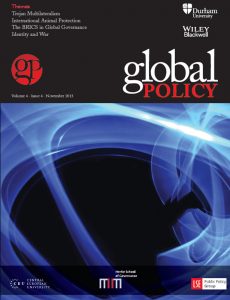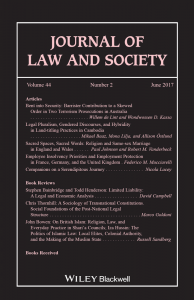Understanding Society through Soccer? Fan Cultures, Identities and Politics
[By Porcielcrosa [CC-BY-SA-3.0], via Wikimedia Commons.]
On a panel on fan cultures, presenters examined the politics and identity work associated with following professional soccer clubs. For instance, Matthew Guschwan explored the multiple meanings of the rivalry between Italian clubs AS Roma and SS Lazio Roma, and the historical roots of the animosity between the clubs rooted in class differences, neighborhood rivalries and political opposition. At the same time, he argued, the rivalry itself has become a marker and a contentious terrain for performing and negotiating ‘romanitas’, a sense of ‘Roman-ness’ and what it means to be from and of Rome. Complicating the situation even further is the fact that recently far right-wing fans of the rival teams have at times forged alliances to attack fans of other teams perceived as politically left, as reported here.
My own presentation investigated a related phenomenon in a different geographic context: Over the past years, the so-called German Ultra subculture (a subculture of grassroots-organized diehard fans, devoted to supporting their team through chants, songs and visual choreographies, that has its roots in Italy) has undergone a process of politicization. Fans of different professional clubs have started to form coalitions, in order to lobby for their interests as fans, organizing demonstrations, national meetings and boycotts. In general, they rally around the slogan “Against Modern Football”, and have developed a critique of commercialization and event-ization of the professional game, opposing rising ticket prices and lobbying for self-determination as fans in the stadium. At the same time, politics beyond their interest as fans are often contentious, with some Ultra groups favoring left-wing politics (including activism against racism, sexism and homophobia in the stands), while small pockets of the Ultra scene are explicitly neofascist in their outlook, trying to use fandom as a political stage. Lastly, probably the majority of Ultra groups define themselves as “apolitical” and seek to keep out politics from the stadium. This emphasis of the stadium as an ‘apolitical’ space, however, has recently lead to problematic dynamics: In a number of cities, ‘apolitical’ Ultras have expelled antifascist fans from the supporter sections based on the argument that antiracist expressions in the stadium bring in politics, thereby dividing the fan base.
On a different panel, a contrasting case of successfull progressive and radical politics in the stadium was presented by Nick Davidson, author of Pirates, Punks and Politics: FC St. Pauli. Falling in Love with a Radical Football Club. FC St Pauli is the smaller of two professional clubs in the city of Hamburg, having never won any league titles and bouncing between the 1st, 2nd and 3rd divisions of German soccer. Nevertheless, St. Pauli enjoys a significant fan base in Hamburg, across Germany and increasingly abroad because of its more recent history and because of what the club stands for. Located in a working-class neighborhood close to Hamburg’s redlight district, the 1980s saw local punks, anarchists and squatters rally around the club. These fans not only pushed out neofascist spectators out of the stadium but have helped create a culture of politics and community-involvement around the club that has ever since been associated with progressive and radical politics, anti-racism and activism against sexism and homophobia. Although FC St Pauli has paradoxically itself become a brand of sorts today, Davidson argued that grassroots politics and anti-commercialism are still strong, as fans continue to have input in the club’s decision-making and the culture surrounding the club remains one of progressive politics.
Back at the fan cultures panel, Loïc Tregoures of the University of Lille similarly discussed a case of fan influence on club politics. Supporters of Croatian club Hajduk Split recently organized around their professional club, sucessfully opposing the sale of the club to an American investor.
All of these examples show how soccer indeed can be a space of politics and they especially raise the question of whether and how fandom can be a site of political socialization and mobilization. Are we even seeing the emergence of social movements in realm of sports consumption? Moreover, it remains to be seen whether and how fan politics translate to the US context, as soccer fans in the US are adapting styles from both Europe, Latin America and beyond and are creating a unique culture of soccer fandom that seems to differ significantly from expressions of fandom in the four major pro sports.
—
Further Reading:
Goldblatt, David. 2008. The Ball is Round. A Global History of Soccer. New York: Penguin.
Merkel, Udo. 2012. “Football Fans and Clubs in Germany: Conflicts, Crises and Compromises.” Soccer and Society 13(2):359–376.
Testa, Alberto. 2009. “The UltraS. An Emerging Social Movement?” Review of European Studies 1(2):54–63.
Testa, Alberto and Gary Armstrong. 2010. “Purity and Danger. Policing the Italian Neo-Fascist Football UltraS.” Criminal Justice Studies 23(3):219–237.





